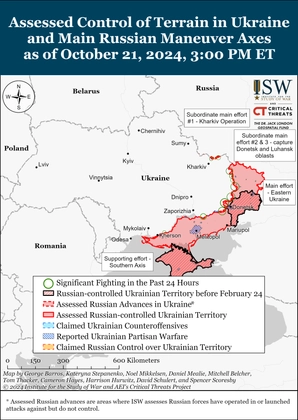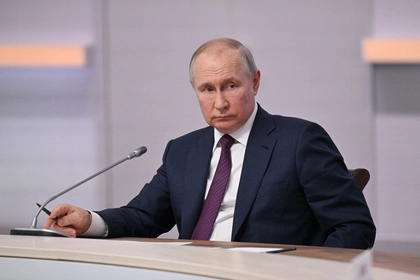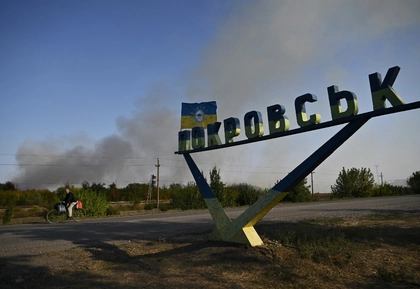In the early 1990s, I encountered Putin several times at international meetings in St. Petersburg, but I never really met him. I talked to the city’s friendly mayor, Anatoly Sobchak, and his first deputy Alexei Kudrin, but Putin, whose background in the KGB was well known, hid on the sidelines and did not really talk to anybody. He was perceived as a secretive nuisance.
Based on this early impression of Putin, I have always been surprised by his remarkable rise to the pinnacle of Russian politics. My view is that he was simply lucky and owed his many promotions to a handful of people close to Russia’s first post-Soviet president, Boris Yeltsin. Putin’s main benefactors were Yeltsin’s daughter Tatyana and last two chiefs of staff, Valentin Yumashev and Alexander Voloshin, along with oligarchs Boris Berezovsky and Roman Abramovich, who trusted his loyalty while Yeltsin was too sick to rule in 1998-99.
JOIN US ON TELEGRAM
Follow our coverage of the war on the @Kyivpost_official.
Putin arrived at a table of increasing abundance laid by Yeltsin and his reformers; he was further helped by an extended period of rising global oil prices. He has had a surprisingly long run, but nobody can expect to be lucky forever. For more than two decades, Putin thrived on personal loyalty and relied on his slow, deliberate approach to decision-making. However, as the invasion of Ukraine continues to unravel, his many flaws and weaknesses are now coming to the fore.

ISW Russian Offensive Campaign Assessment, October, 22, 2024
Despite being in power for more than two decades, Putin has never broadened his expert base. Instead, he has stuck to his former KGB colleagues and old St. Petersburg technocrats along with a small number of economists and lawyers. How can anybody seriously listen to Nikolai Patrushev or Yuri and Mikhail Kovalchuk? They are considered among Putin’s closest advisers but they are full of old-style Soviet conspiracy theories.
Putin himself has consistently refused to rely on any sources of information other than his own intelligence agencies. In his big media events, he has repeatedly shown that he believes in all manner of conspiracy theories. In other words, he has consciously chosen to remain poorly informed.
He has never been a fast decision maker or crisis manager and has always taken his time. For much of his reign this has not been a major issue, but that is no longer true in the current wartime environment. Putin’s obvious lack of skill as a crisis manager is presumably one of the reasons why so many important decisions related to the war in Ukraine are late and inconsistent.
Putin is also a micromanager who is reluctant to delegate and prone to over-centralizing. He has persistently gone far too deep into details. Much of the failure of the war in Ukraine seems to have been caused by Putin insisting on deciding too much himself, just like Hitler during World War II. Military decisions require detailed knowledge which Putin simply does not possess. He is also physically far from the battlefield due to his lack of personal courage.
Since 2000, Putin has systematically destroyed Russia’s state institutions and imposed extreme repression. One consequence is that his regime has very little capacity to generate, receive, or utilize negative feedback. Everybody around him has learned that he only wants to hear good news. As a result, neither he nor his administration learn much from their mistakes.
Many biographers of Putin have been reluctant to discuss allegations that he has been deeply involved in organized crime and kleptocracy for much of his political career. Nevertheless, awareness of this kleptocracy is vital for anyone seeking to understand today’s Russia. Far-reaching criminal influence has made the Russian state rot from within. It can neither manage processes nor produce things effectively.
A peculiarity of the Putin regime is that the ruler actually offers two-way loyalty, unlike Stalin. Putin recognizes only one crime, disloyalty. If one of his underlings happens to steal a billion or two, it is not typically seen as a problem. Nor does Putin fire anybody because of incompetence. Instead, incompetent senior officials are forgiven for their frequent blunders as long as they remain personally loyal to Putin.
The invasion of Ukraine has exposed widespread corruption and incompetence throughout the Russian military and defense sector, but Putin’s old friends and allies remain in their posts. Rather than dismissing the many incompetent Russian generals, Putin prefers to circulate them. The most outstanding failures, Defense Minister Sergei Shoigu and Chief of the General Staff Valery Gerasimov, have not lost their jobs despite their obvious and costly mistakes.
With the invasion of Ukraine now in its sixteenth month, Putin’s limitations as a leader have left Russia heading for an historic defeat. During the early years of his reign, he benefited from the hard work done before him by 1990s reformers and enjoyed favorable international conditions, but his many sins and shortcomings are now clearly catching up with him.
This article is reprinted from Atlantic Council’s UkraineAlert. See the original here.
The views expressed are the author’s and not necessarily those of Kyiv Post.
You can also highlight the text and press Ctrl + Enter






